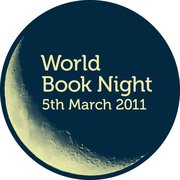Hometown Prophet by Jeff Fulmer
Set in
contemporary Nashville, Tennessee, Fulmer's novel ponders on what might happen
if a prophetic gifting like that of an Amos or Micah might appear on the
charismatic church scene today.
I’m writing from the perspective of the UK church, so the
sharp divisions that appear to exist in the American church between the
Christian Right (which is here portrayed to be neither Christian nor right...)
and more open evangelicals are less apparent in the church in Western Europe.
Nevertheless, the attitudes towards prophetic ministry are worryingly similar,
with prophecy being reduced to some encouraging "the Shepherd loves his
sheep" message as opposed to the call to challenge corrupt systems and institutional
wrongdoing.
So the
central question -what would happen if that kind of gift were exercised? - and
the responses the book suggests would come from the wider church, people of
other faiths, the media, government agencies and wider society have a resonance
here too.
Peter,
our central character is not a flimsy carapace upon which to project the story,
but realised as a person with depth, with failure as well as success, and who
is, ultimately, a human, just like us.
The story
does, at times, seem to rely on stereotypes and issues rise and are included
seemingly aimed at irritating the section of the church the book sets out to
challenge most strongly; so our hero speaks in favour of environmental
protections, prophesies to bless people of another faith, and challenges issues
around human sexuality. These may be seen as the big issues from some
perspectives, but I wonder if God were to raise up prophets to speak into
western society these would be the issues He'd address. That might just be an
interesting discussion for a dinner party, and ultimately these are the issues
our prophet is inspired to speak out on.
So, faced
by a varied response, our prophet's influence rises, and so does resistance and
rejection.
How this
all works out, including a good twist, makes for great reading, and although
Fulmer's no Shakespeare, the story romps along, with this reader keen to see
how the hero fares in the end.
The
questions behind this book and the challenge to the church that has made
prophecy a comforting thing alone could have been an angry preach, or a long
treatise urging reform. By presenting us with a story Fulmer invites us and
involves us in a more exploratory journey, giving us space to consider issues
and people, and perspectives sometimes overlooked.
I'd want
to recommend this to charismatics and non-charismatics, to evangelicals and to
liberals, and to those who don't know what they are. Perhaps as a result
they'll join with me in a prayer for a true restoration of prophecy to the
church, not the sham we often see dressed up in its clothes.
For more on this book, see: http://www.hometownprophetbook.com/


Comments